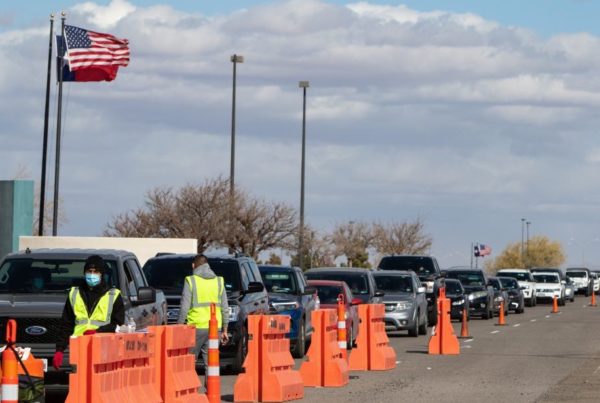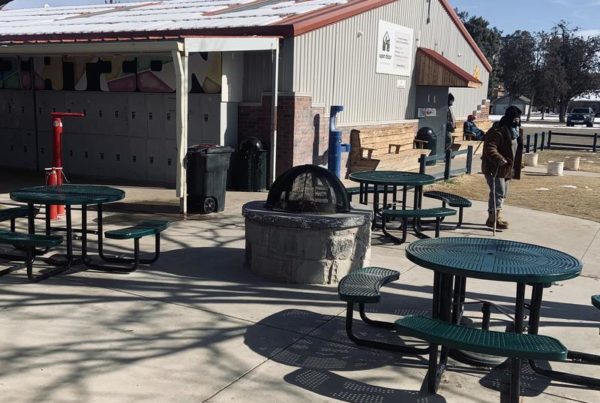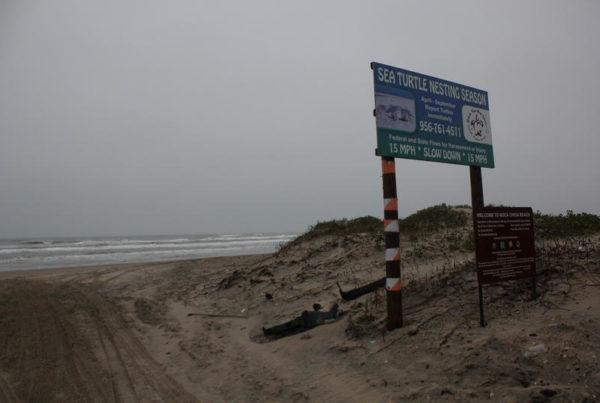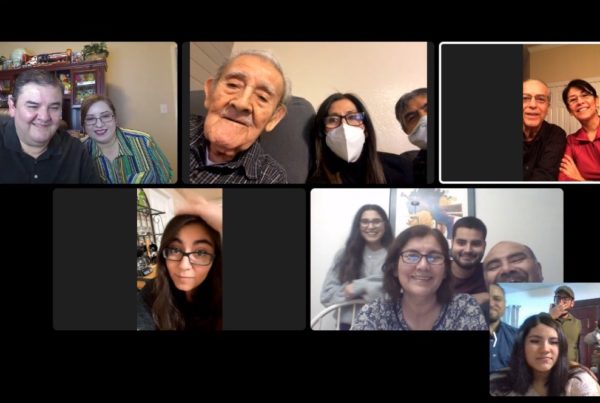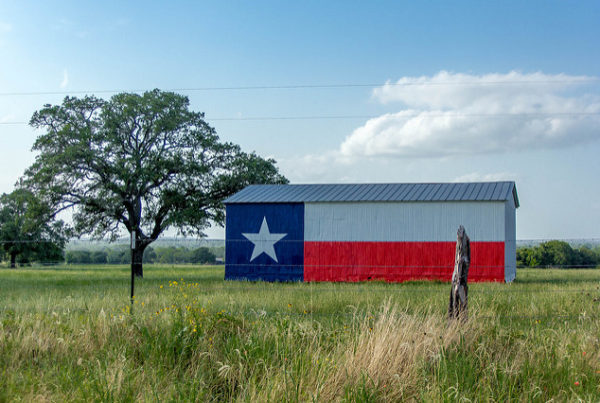From Texas Public Radio:
San Antonio guitar repairman Mike Acosta died earlier this month. At first glance, it was merely the passing of another skilled craftsman in his trade. But a little deeper lookreveals Acosta’s life was one which touched on greatness over and over.
For most guitar players, neck adjustments, re-fretting or other repairs are outside their abilities. Curator at The Wittliff Collections at Texas State University Hector Saldaña said having a specialist’s help is critical.
“Having a great guitar repair man or guitar tech is similar to having a great car mechanic,” he said.
Saldaña knew Acosta well, and wrote his obituary in the San Antonio Express-News.
“Mike Acosta was the go to guy for getting a guitar repaired or for getting it ready to be roadworthy or ready for the studio,” he said.
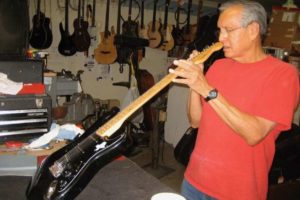
Mike Acosta checking the neck of a Fender Stratocaster
From the humble vantage point of a guitar technician and through years of specialized work, Acosta became beloved by many, achieving a kind of greatness by virtue of those who looked up to him.
“He knew lots of musicians like from Brian May of Queen relied on him, members of Van Halen, Quiet Riot, George Strait,” Saldaña said.
Besides his own considerable skill set, Saldaña said Acosta came from a deep line of talented people. The Acostas were a legendary family of stringed-instrument makers, dating to 1920.
The family’s musical legend originally traces back to his grandfather, who opened up Houston Street’s Acosta Music, at one time the city’s largest music store.
“They specialized in handmade stringed instruments like guitars, bajo sextos, lutes. And also sheet music,” he said.
During and after the Mexican Revolution, the brain drain from Mexico benefited San Antonio with new craftspeople, and new cultural talent.
“His grandfather came from Mexico, made some highly crafted guitars, whose lineage is pretty amazing,” Saldaña said. “He made Lydia Mendoza’s 12 string guitar. In other words, the guitar that you hear in that 1934 recording of Mal Hombre when she was a teenager — that’s an Acosta guitar.”
Mendoza is one of Mexican music’s most awarded and beloved figures, and was even featured on a US postage stamp.
Multi-Grammy winning Accordionist Flaco Jimenez also learned guitar when he was young, and the one his father bought him was an Acosta guitar.
“It was a guitar that was originally made for a Mexican singer and movie star, and it was never picked up,” Saldaña said. And I’ve done some research: It’s because that person was killed in a bar fight in Mexico City in a few years before Flaco was ever born.”
Innovation was also key to the Acosta family legend. In the photo accompanying his obituary, Michael Acosta is holding an electric, double-necked bajo sexto/guitar. Saldana said the instrument is significant.
“That guitar was built by his father, amazingly, in 1947, which puts his father — whose name was also Miguel — at the very cutting edge forefront of the development of the electric guitar, along with Les Paul and Leo Fender,” he said.
A double-necked instrument such as this was unheard of in 1947. Most Americans didn’t see double-necked guitars until Led Zeppelin’s Jimmy Page played one live for Stairway to Heaven. But decades earlier, one was being played right here in San Antonio, by the Acostas.
The Acosta family also had another luminary: Martin Macias. While not a blood relative, he was sponsored by and worked with the Acostas.
“That name is like gold when it comes Bajo Sexto instruments, (he) learned his craft at Acosta music,” he said.
Bajo Sexto is an instrument that stands alone in Mexican music, taking the role of both a regular guitar, and a bass guitar.
The bajo sexto played a co-starring role with the accordion in the creation of Conjunto music, and the instrument’s gold standard was created here in San Antonio.
In this family of luminaries, Michael Acosta early on moved away from guitar building, and staked his own ground in guitar repair.
“Part of the story is that he carved out his own niche and kept a name that is a sort of a fabled name in San Antonio history alive since 1920, and then even until the end of his life,” Saldaña said.
81-year-old Acosta died on Jan. 5, and leaves behind three children.




